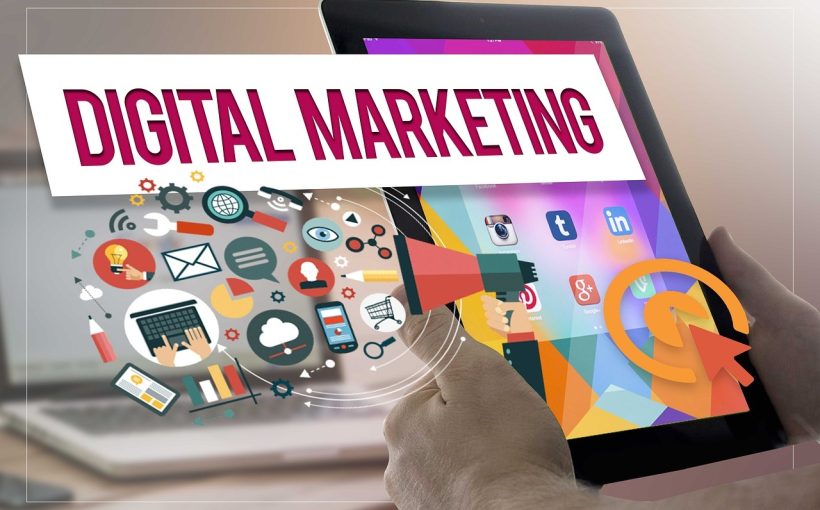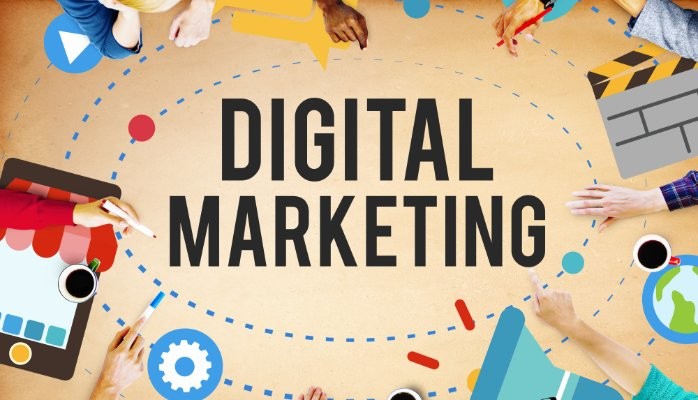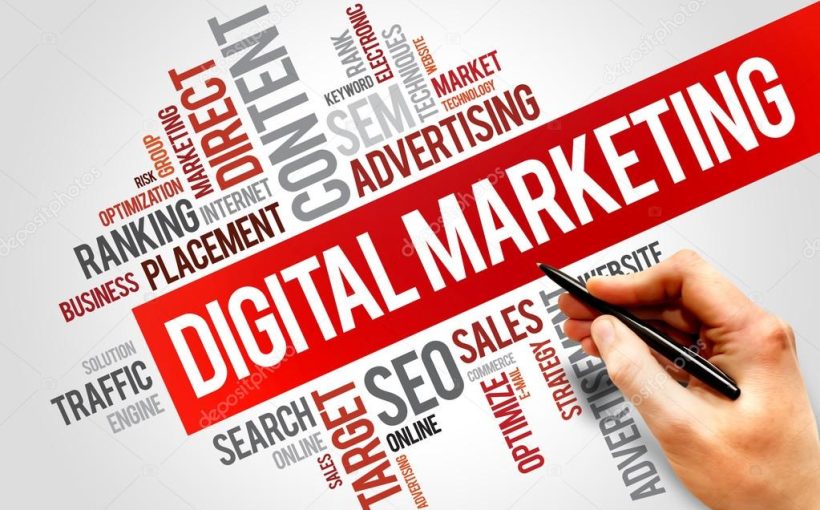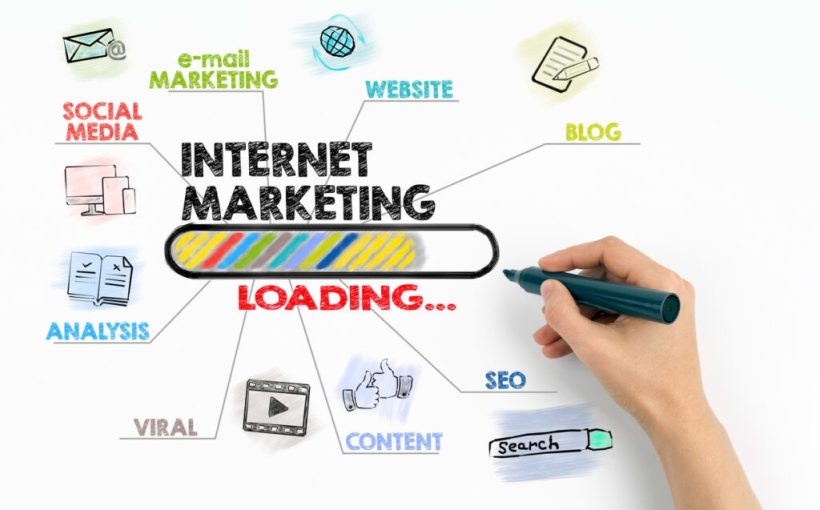In the fast-paced and ever-evolving realm of business, the fusion of traditional marketing strategies with the digital landscape has become a necessity. Technology’s pervasive influence on consumer behavior and communication channels compels companies to adapt continuously to maintain their competitiveness. In this article, we delve into the challenges and prospects of traditional marketing in a digital world, elucidating how businesses can adeptly bridge the gap between old-school and contemporary approaches.
Introduction: Navigating the Shifting Marketing Paradigm
In an era dominated by smartphones, social media, and search engines, marketing has undergone a profound transformation. Traditional marketing methods such as print advertisements, billboards, and radio commercials, though not rendered obsolete, now share the stage with their digital counterparts. This shift necessitates businesses to reevaluate their marketing strategies to stay relevant.

The Enduring Value of Traditional Marketing
While digital marketing offers expansive reach and precise targeting capabilities, traditional marketing methods continue to hold intrinsic value. Physical advertisements and live events can forge tangible connections with consumers, adding a personal touch that some digital channels struggle to emulate.
The Imperative of Digital Transformation
The digital transformation of marketing is no longer optional but a compelling necessity. Companies must adapt to the evolving landscape or risk obsolescence. Digital channels offer opportunities for heightened visibility and engagement, rendering them indispensable components of modern marketing strategies.
The Synergy of Traditional and Digital Marketing
Successful marketing in the contemporary landscape entails a delicate balance between traditional and digital approaches. Businesses should strive to leverage the unique strengths of both realms. For instance, a potent marketing campaign may seamlessly integrate a television advertisement with precisely targeted social media promotions.
Content Marketing’s Pivotal Role
Content marketing assumes a central role in bridging the gap between traditional and digital marketing. Crafting top-notch, engaging content that resonates with the audience is paramount. Whether it takes the form of a blog post, video, or infographic, compelling content can captivate the attention of potential customers.
Harnessing the Potential of Social Media
Social media platforms stand as cornerstones of digital marketing. Businesses can interact with their audience, cultivate brand loyalty, and even drive sales through platforms such as Facebook, Instagram, and Twitter. Effectively harnessing social media is pivotal for achieving success.

The Significance of SEO and SEM Strategies
Search Engine Optimization (SEO) and Search Engine Marketing (SEM) are indispensable in the digital realm. Optimizing content for search engines ensures that potential customers can discover your business online. Pay-per-click (PPC) advertising can also be a potent tool when employed strategically.
Email Marketing Reimagined
Email marketing, once a traditional tactic, has evolved significantly. Personalized, segmented email campaigns can yield impressive results. Automation tools make it easier than ever to engage with customers at the right time with the right message.
The Power of Data-Driven Decision Making
Digital marketing offers an abundance of data. Companies can employ analytics to glean insights into customer behavior, campaign performance, and return on investment (ROI). Data-driven decision-making lies at the core of success in the digital realm.
Fostering Trust in the Digital Epoch
In an era plagued by fake news and online scams, building trust is of paramount importance. Businesses must maintain transparency, safeguard customer data, and consistently deliver on promises to establish credibility and trust in the digital realm.
Measuring Triumph: The Metrics That Count
Evaluating the success of marketing campaigns goes beyond counting likes and shares. Key performance indicators (KPIs) such as conversion rates, customer acquisition cost (CAC), and customer lifetime value (CLV) are essential for gauging ROI.

Budget Allocation for Cost-Effective Marketing
Digital marketing often proves to be more cost-effective than traditional methods. Businesses must judiciously allocate their budgets, striking a balance between channels that yield the best results.
Adapting to the Dynamic Consumer Landscape
Consumer behavior continues to evolve in the digital age. Understanding how customers research, shop, and make decisions online is essential for tailoring marketing efforts effectively.

Envisioning the Future of Marketing
The future of marketing promises further evolution. Emerging technologies such as AI, augmented reality (AR), and voice search will shape the landscape. Staying informed and agile is crucial for sustained success.
Conclusion: Flourishing in the Hybrid Marketing Era
In conclusion, traditional marketing still has a significant role to play in the digital world, but it must evolve to remain relevant. The integration of traditional and digital marketing strategies presents businesses with the best opportunity to thrive in this hybrid marketing era. By comprehending consumer behavior, leveraging technology, and effectively measuring success, companies can successfully navigate this ever-evolving landscape.
-
Q: How can businesses effectively balance traditional and digital marketing?
A: Businesses can strike an effective balance by recognizing the strengths of each approach. They should consider their target audience, industry, and marketing goals to determine the right mix. Integration and coordination between traditional and digital marketing efforts are key to success. -
Q: What are some key strategies for content marketing in the digital age?
A: Content marketing in the digital age should focus on producing high-quality, valuable content that resonates with the target audience. Utilize various content formats such as blogs, videos, and infographics. Personalization, storytelling, and consistency are essential strategies for success. -
Q: How can companies build trust in an online environment?
A: Building trust online requires transparency, data security, and delivering on promises. It’s crucial to provide accurate information, engage with customers through social media and email, and respond to feedback and inquiries promptly. Consistency in branding and messaging also fosters trust. -
Q: What are the most critical KPIs for measuring success in digital marketing?
A: Key Performance Indicators (KPIs) vary depending on the marketing goals, but some critical ones include conversion rates (CR), customer acquisition cost (CAC), customer lifetime value (CLV), click-through rates (CTR), and return on investment (ROI). -
Q: Which emerging technologies will have the most significant impact on the future of marketing?
A: Emerging technologies like Artificial Intelligence (AI), augmented reality (AR), and voice search are poised to revolutionize marketing. AI can enhance personalization, AR can provide immersive experiences, and voice search will reshape how consumers find information, all shaping the future of marketing.











